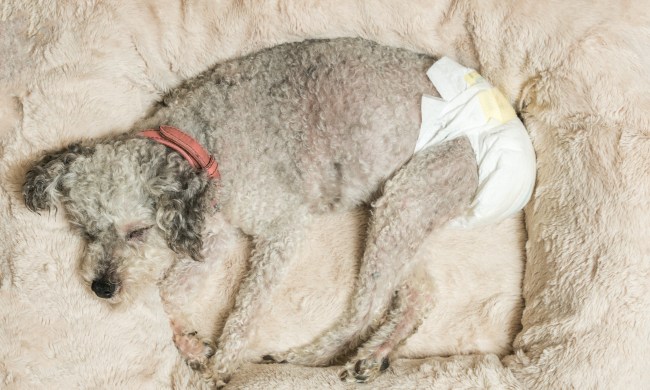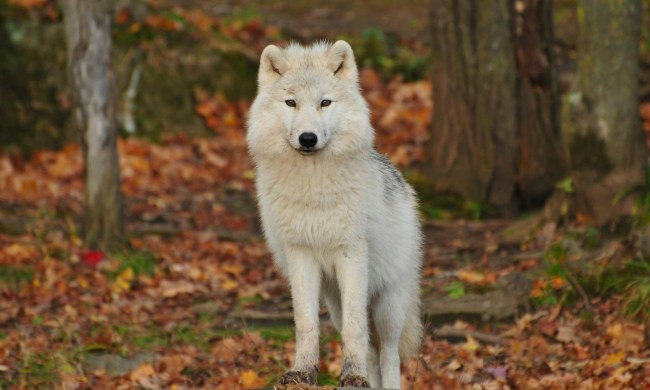You look out the window, and your heart sinks as you see dirt flying in all directions. Your dog is having a great time digging yet another hole in the backyard. When this happens, it’s important to remember that, while a yard full of craters might be your worst nightmare, your pup sees it as the perfect playground.
It will take time and patience to break their digging habit, but many dogs can learn to rein in the impulse. Read on to learn how to stop dogs from digging, so you can get your yard looking nice again.
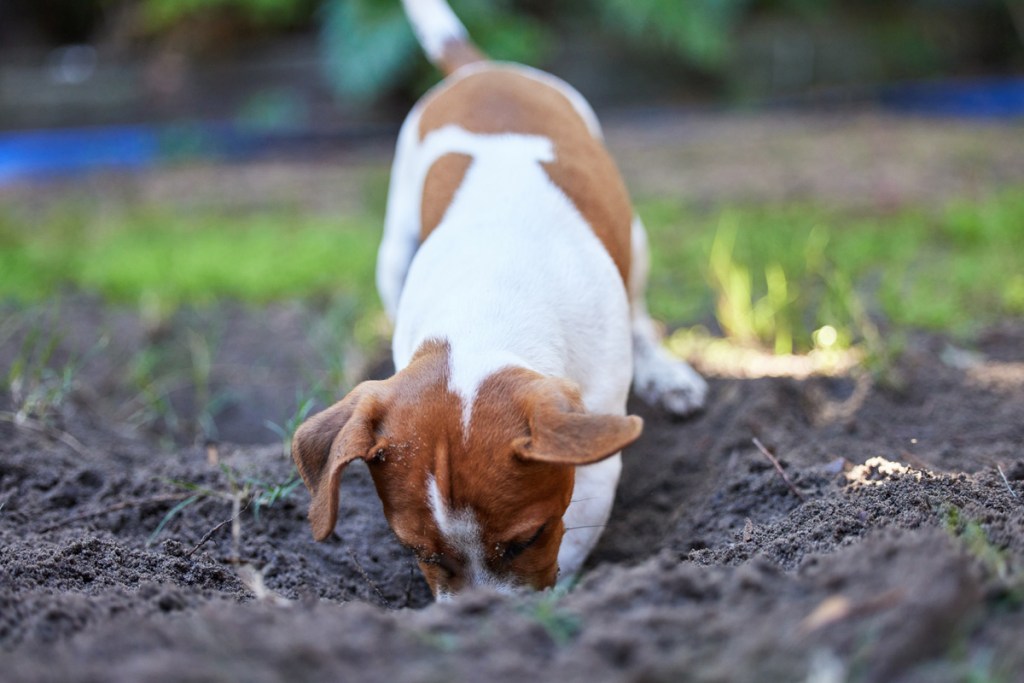
To learn how to stop your dog from digging, you need to know what's causing them to dig
Dogs dig holes for many reasons, and canine training experts say figuring out what’s motivating your pooch can help get to the root of the problem.
Let’s look at the most common reasons dogs dig and what you can do to stop it.
Step 1: Provide a sandbox.
Some dog breeds are natural-born diggers. After all, burrowing is an instinctual behavior that goes back to our dogs’ wild ancestors. Many hunting dogs, such as beagles, terriers, and dachshunds were bred to dig prey out of their dens.
Behaviorists at the Humane Society of the United States recommend providing a sandbox to meet your dog’s digging needs. Bury a bone in the sand to attract them to their new playground, if needed.
Step 2: Redirect your dog to cooler spots in the yard on really hot days.
Does your dog tend to dig holes during the summer months and then lie in the hollow they've made? Smart boy! The earth under the surface is much cooler and probably feels refreshing to your dog.
Redirecting your dog to shady spots in the yard, such as under a tree, can give them an alternative way to cool off. Don't forget to praise your dog when they stay there! You might also consider an all-weather-protection doghouse if your furry friend tends to spend a lot of time outside. In extreme temperatures, of course, your dog should stay indoors.
Step 3: Keep your dog from trying to escape.
Some dogs dig holes under the fence to escape. This could be in pursuit of wildlife or a neighborhood pet but can also happen if a dog is bored.
Attach chicken wire to the base of the fence to stop escape digging. To avoid this problem altogether, never leave your dog alone in the yard for long periods. It’s also important to provide mental stimulation by walking your dog at least twice a day.
Step 4: Prevent your dog from taking toys into the yard.
In the wild, wolves bury food they can’t eat immediately to protect it from scavengers. Dogs inherited this behavior, and some will bury toys or bones in the yard.
Limit the number of toys or bones you give your dog, so they won’t have extras to hide. Don’t let your dog take toys into the yard, and if they chew on a bone outside, remove it when they lose interest, so they don’t have an opportunity to bury it.
Step 5: Keep your dog mentally stimulated.
Many dogs dig just because they enjoy it. Digging turns up interesting smells and offers mental stimulation. This will often happen in places where you’ve recently been gardening.
In addition to long walks, training experts recommend playing ball or Frisbee or enrolling in training classes to provide mental stimulation.
Step 6: Limit access to diggable areas of the yard.
For some dogs, having a designated place to dig or a cooler spot to rest may not be enough. Old habits die hard, after all! To prevent your pup from going back to digging in a spot you don't want them to dig, make sure to cut off their access to that area or keep them under constant supervision.

Can you use cayenne pepper in your yard to stop your dog from digging?
According to the AKC, some have considered sprinkling cayenne pepper where their dog digs. While cayenne pepper may not be harmful to your dog when swallowed, it can irritate their eyes. This could be a problem if your dog touches their face or eyes with their paws after digging in an area that’s been sprayed, so it’s safest to avoid using cayenne pepper as a deterrent.
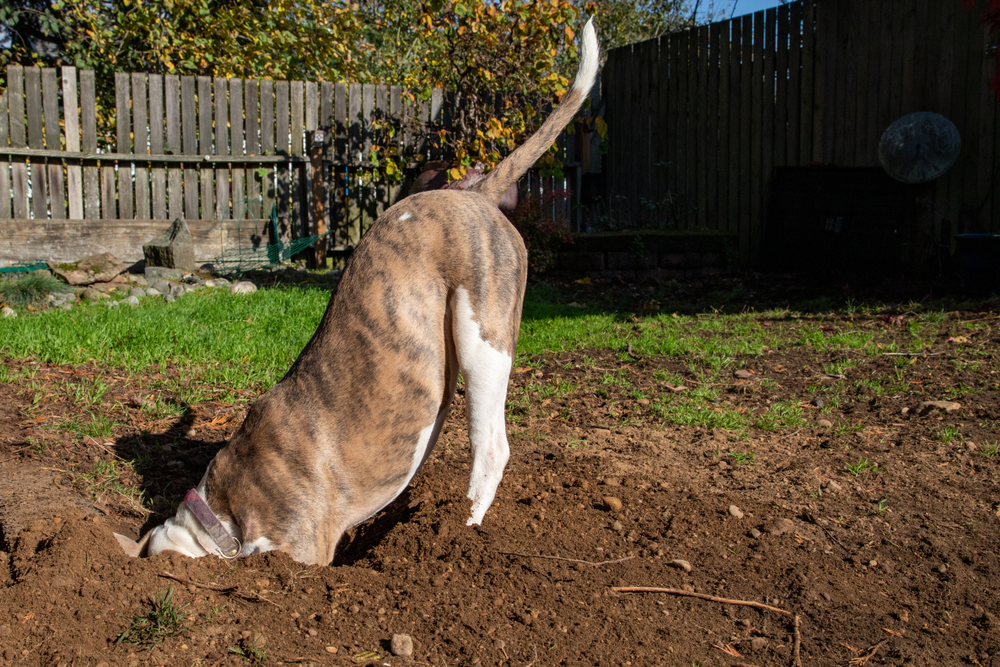
What can you use to stop your dog from digging?
If you need an extra hand keeping your dog from digging, you can use commercial products or make spray at home. However, keep in mind that what works for one dog might not deter another. Always check with your veterinarian before using a new product.
Experts at Garden Season suggest making natural homemade sprays with citronella oil, apple cider vinegar, or citrus fruit to deter dogs from digging. If you prefer to go the commercial route, though, you can choose from several repellents. Here are three products that use natural ingredients:
NaturVet Off Limits Training Spray is a combination of herbal extracts, including clove, garlic, and thyme.
Pet Organics No Dig! includes citronella oil, lemongrass, geranium, clove oil, and thyme oil.
Bonide – Go Away! Rabbit, Dog, and Cat Repellent uses granules instead of spray, with natural ingredients including cinnamon and thyme oils.
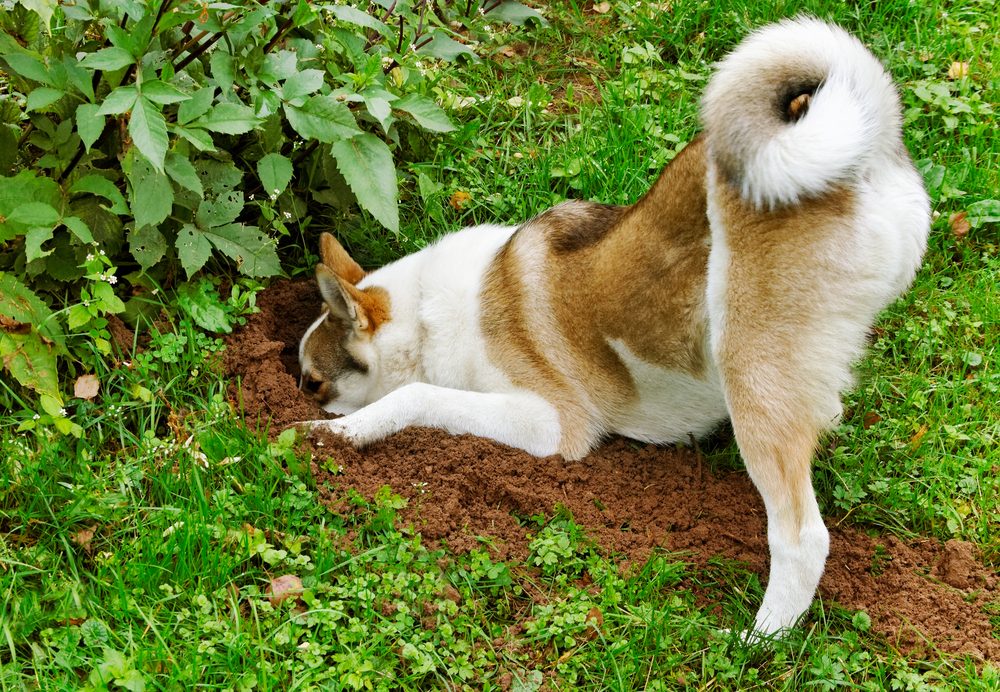
How to correct digging when you catch your dog in the act
Helping your furry friend replace their digging behavior with something more acceptable can be a challenging process, but there are effective ways to correct and redirect the problem.
Step 1: The Humane Society of the United States recommends creating a loud noise as an interruption.
Step 2: Immediately tell your dog "no dig." This will help them understand and associate the behavior with the consequence, especially if they already know "no" through obedience training.
Step 3: Then, immediately remove your dog from the situation. You can either bring them to somewhere where digging is allowed (such as a sand box) or by bringing them to an area where they can't dig.
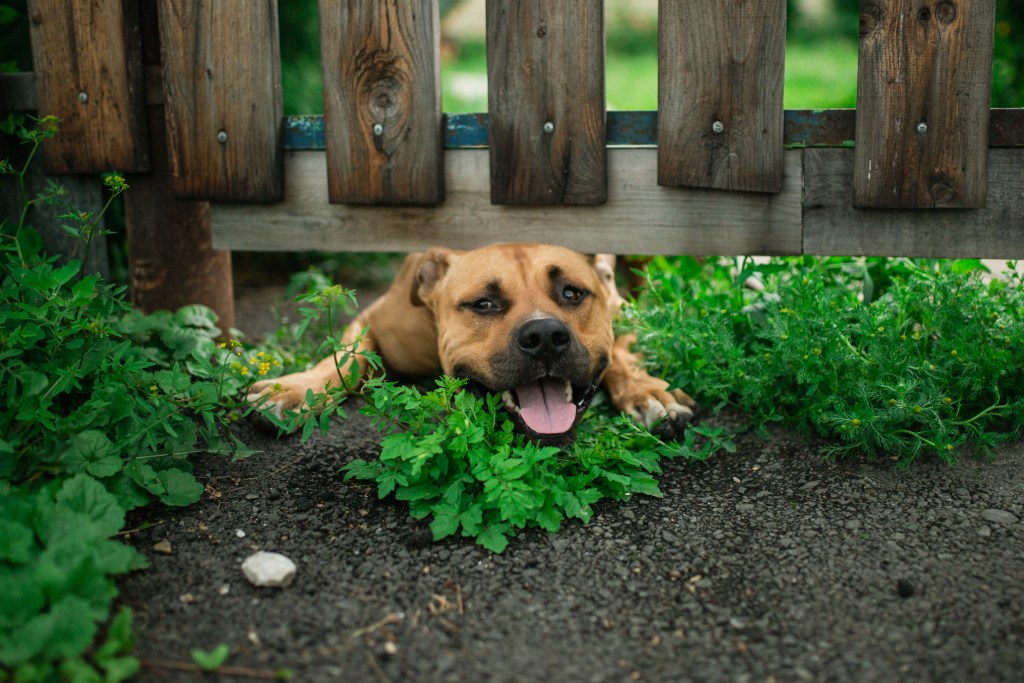
How do I keep neighbors' dogs out of my yard?
This all sounds well and good if it's your dog digging, but what do you do when the neighbor's canine has decided to claim your yard as his spot to bury things in? The first step is to talk to the owners and see if there's a workable solution, such as putting up better fencing between you.
A harmonious agreement will work better long term, even if you have to put aside some of your frustration to get there. Next, you should discuss some of the same sprays we mentioned earlier that help keep dogs out. Lastly, consider setting up motion activated sprinklers or a sound machine that will deter the local pups from taking over your homestead.
Whatever product you choose, be prepared to use it in combination with behavior modification. It will take patience and persistence to break your dog’s digging habit. If you’ve tried everything and your dog is still digging holes in the yard, you may have no choice but to stay out there with your pet. The good news is that gives you additional time to play or just relax with your buddy. And that’s definitely a win-win for both of you.


